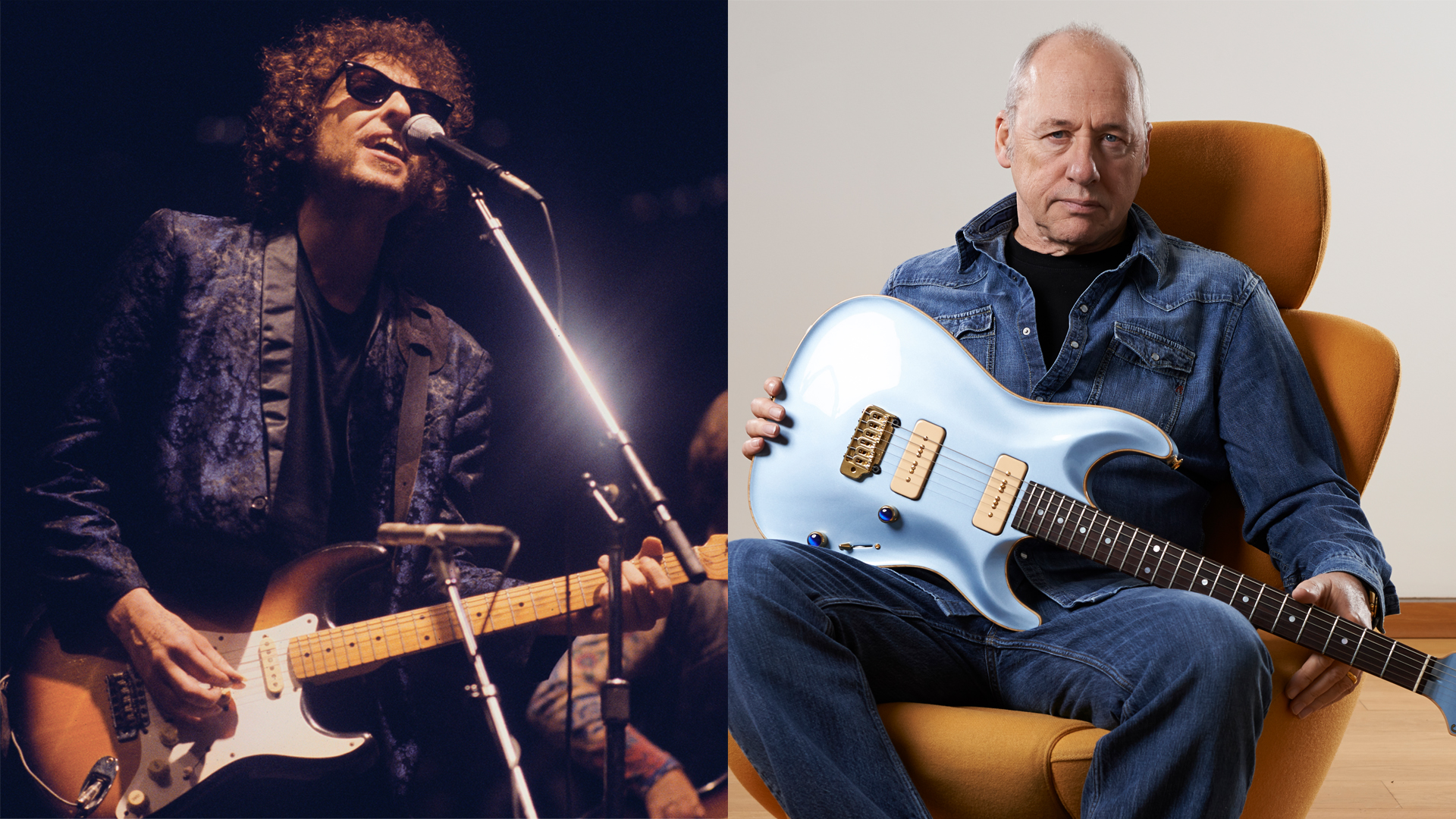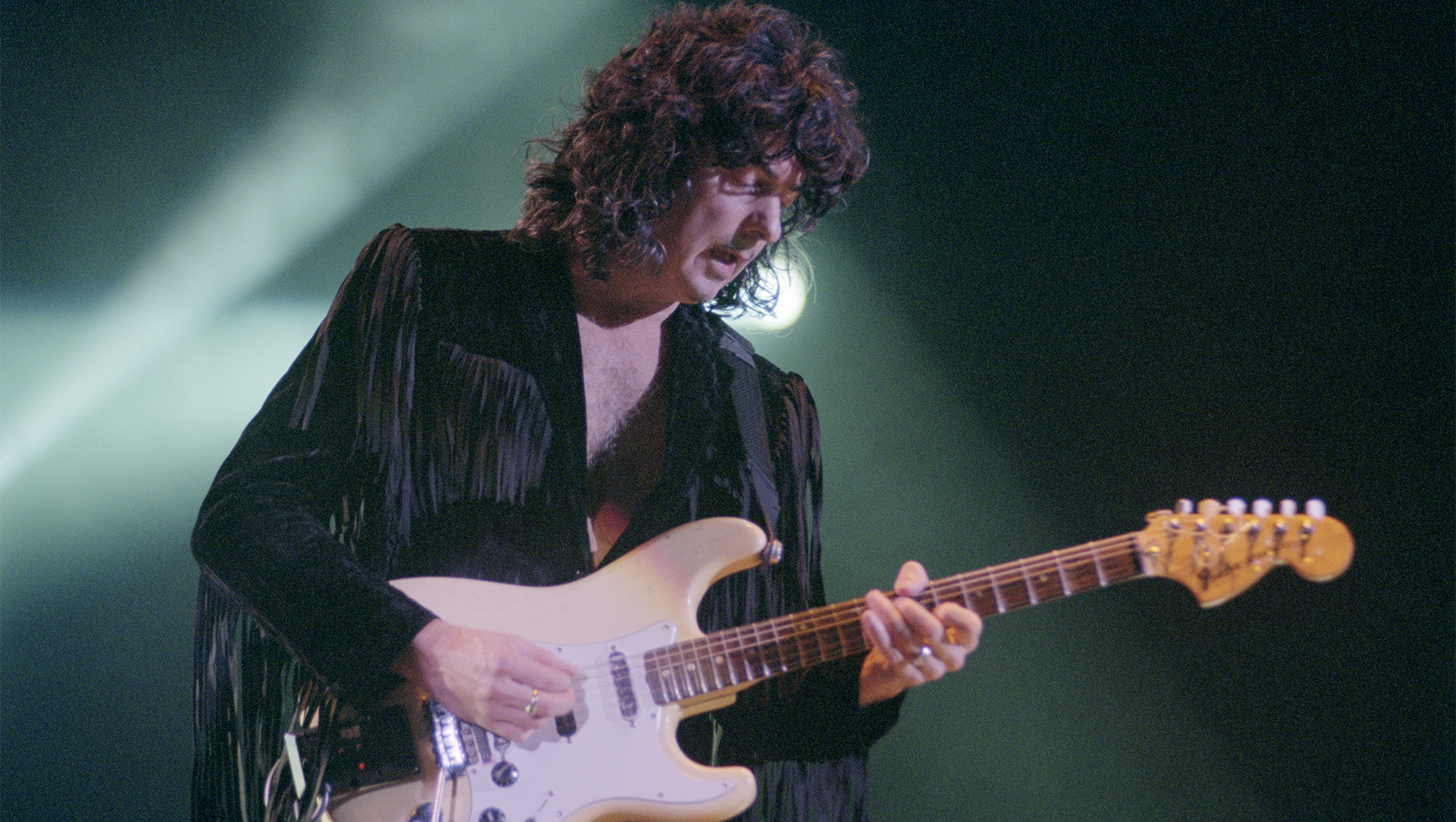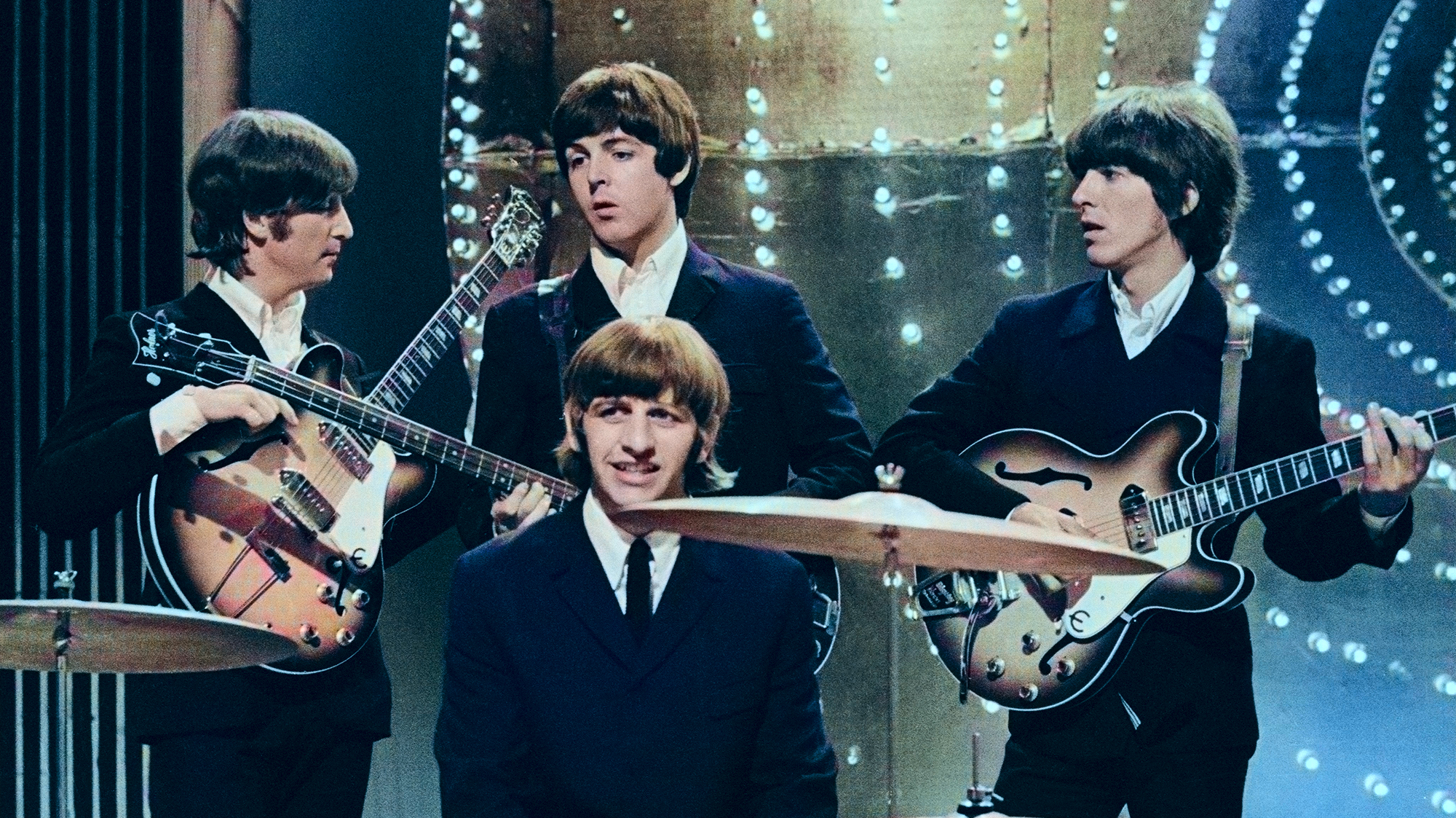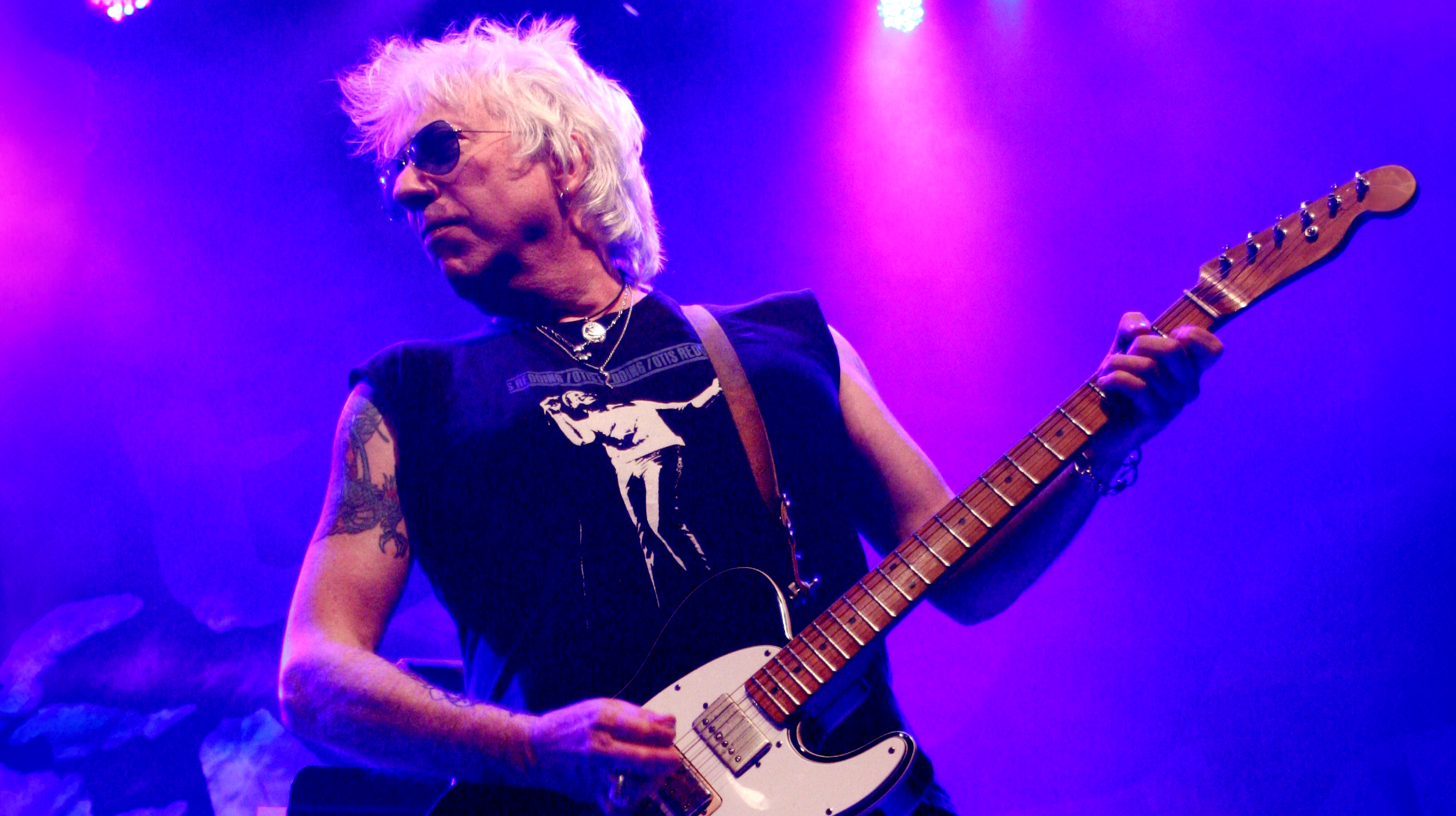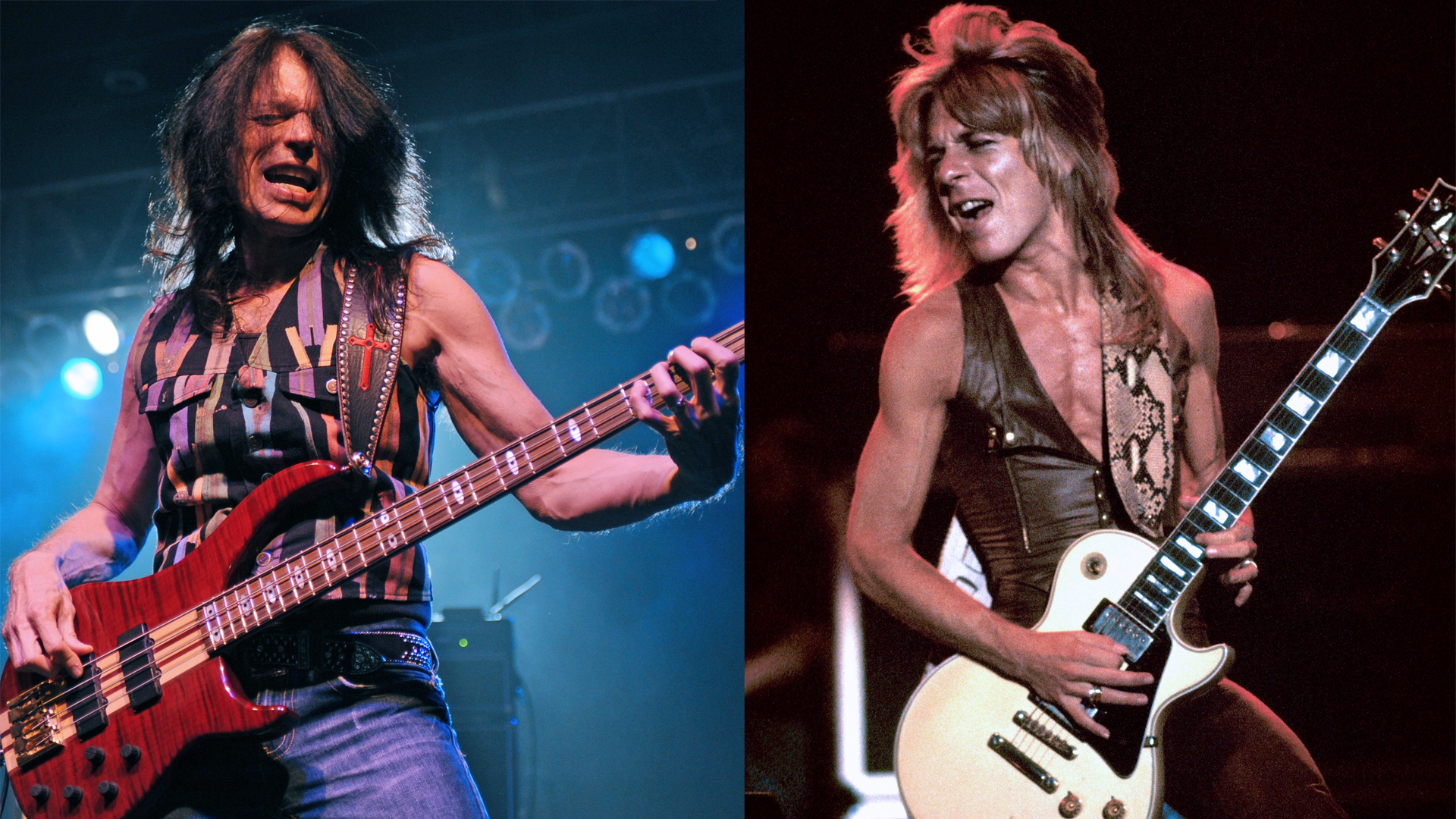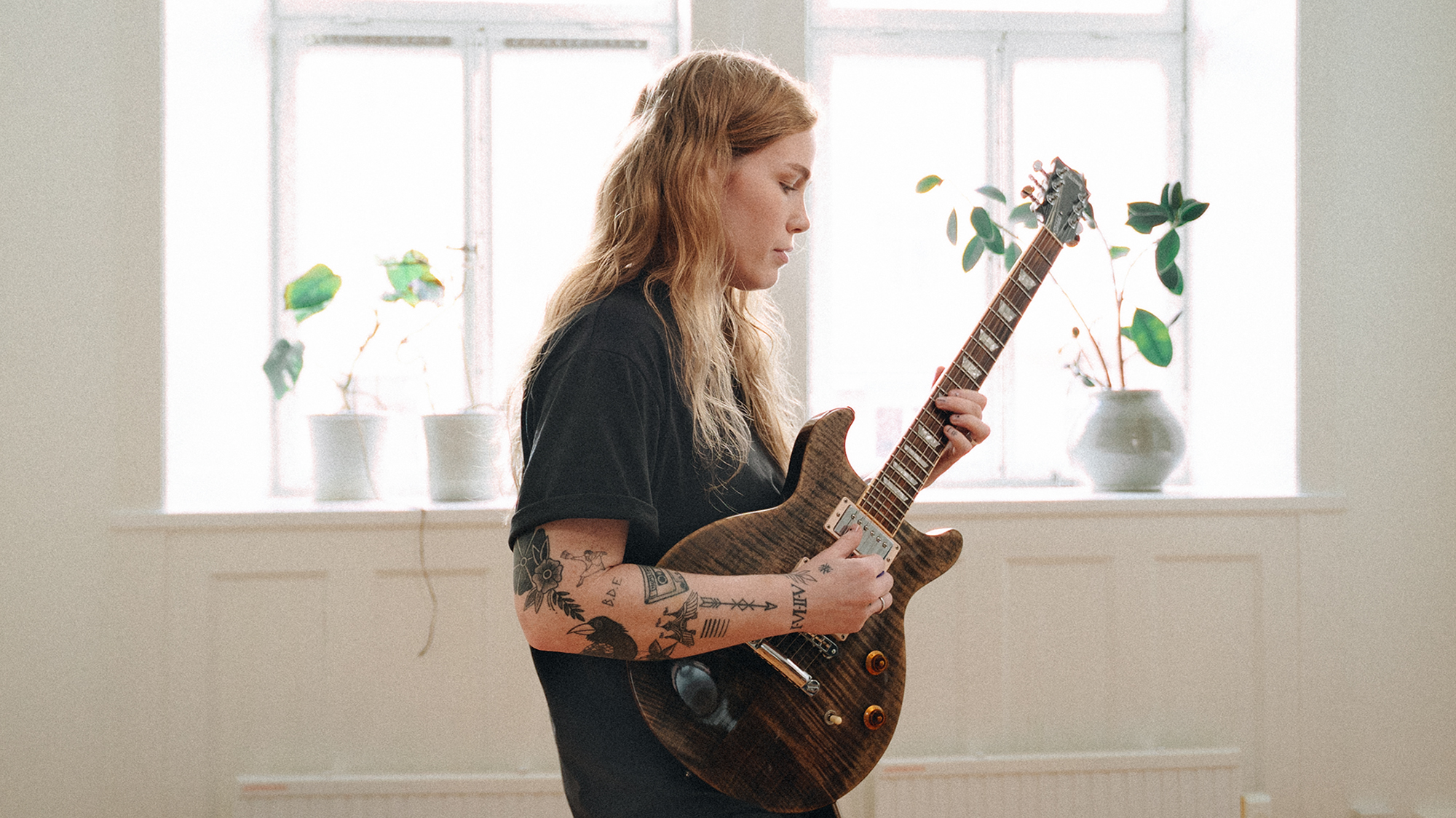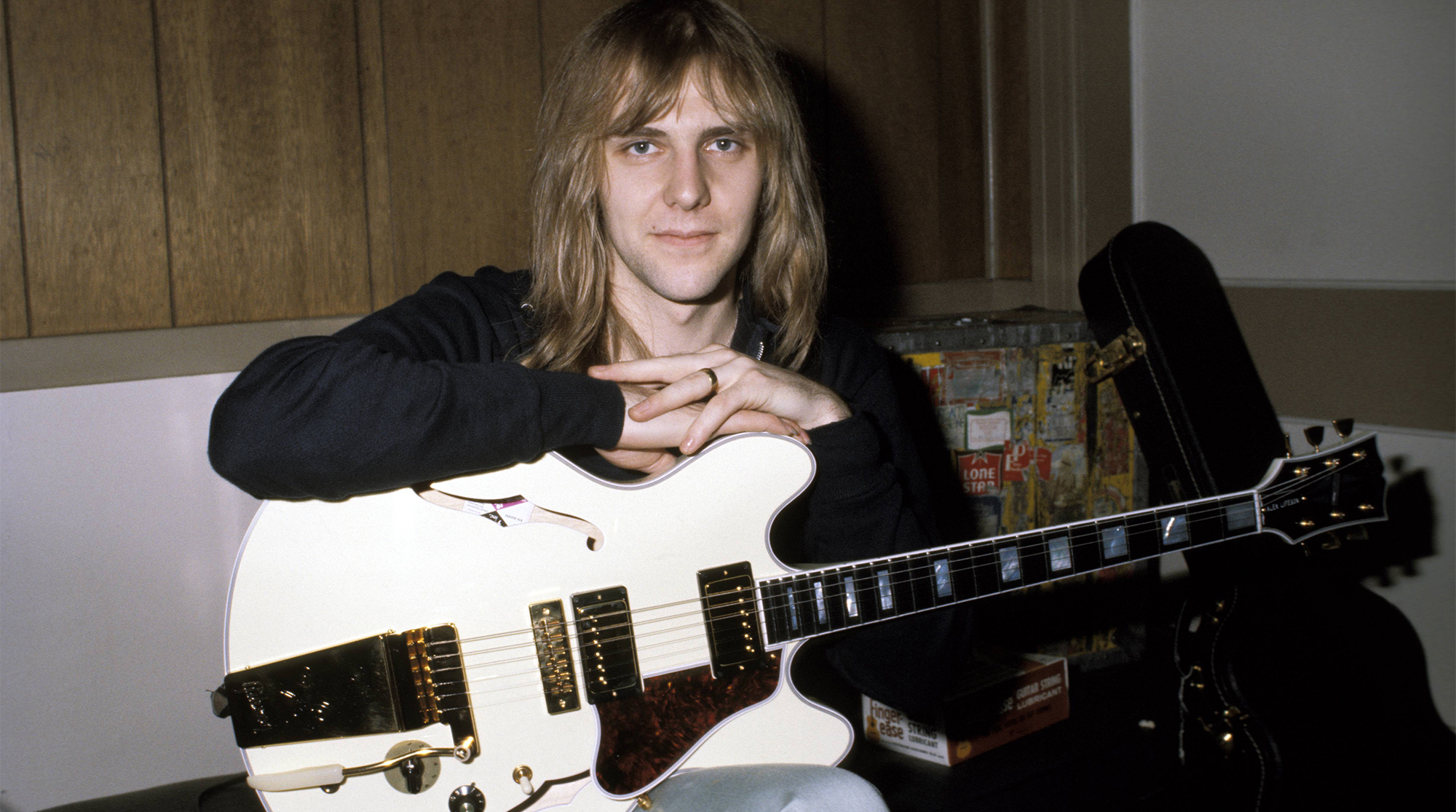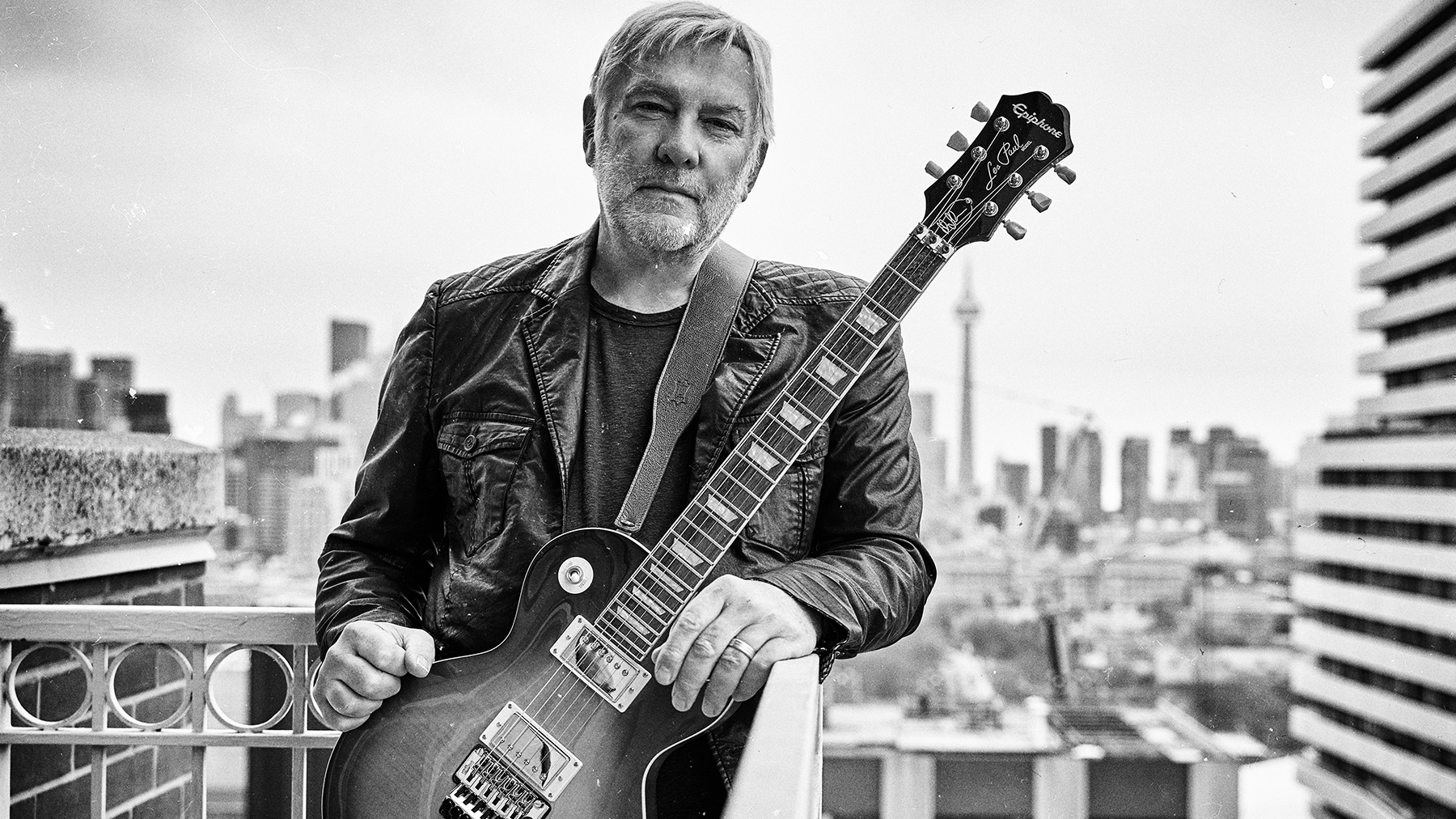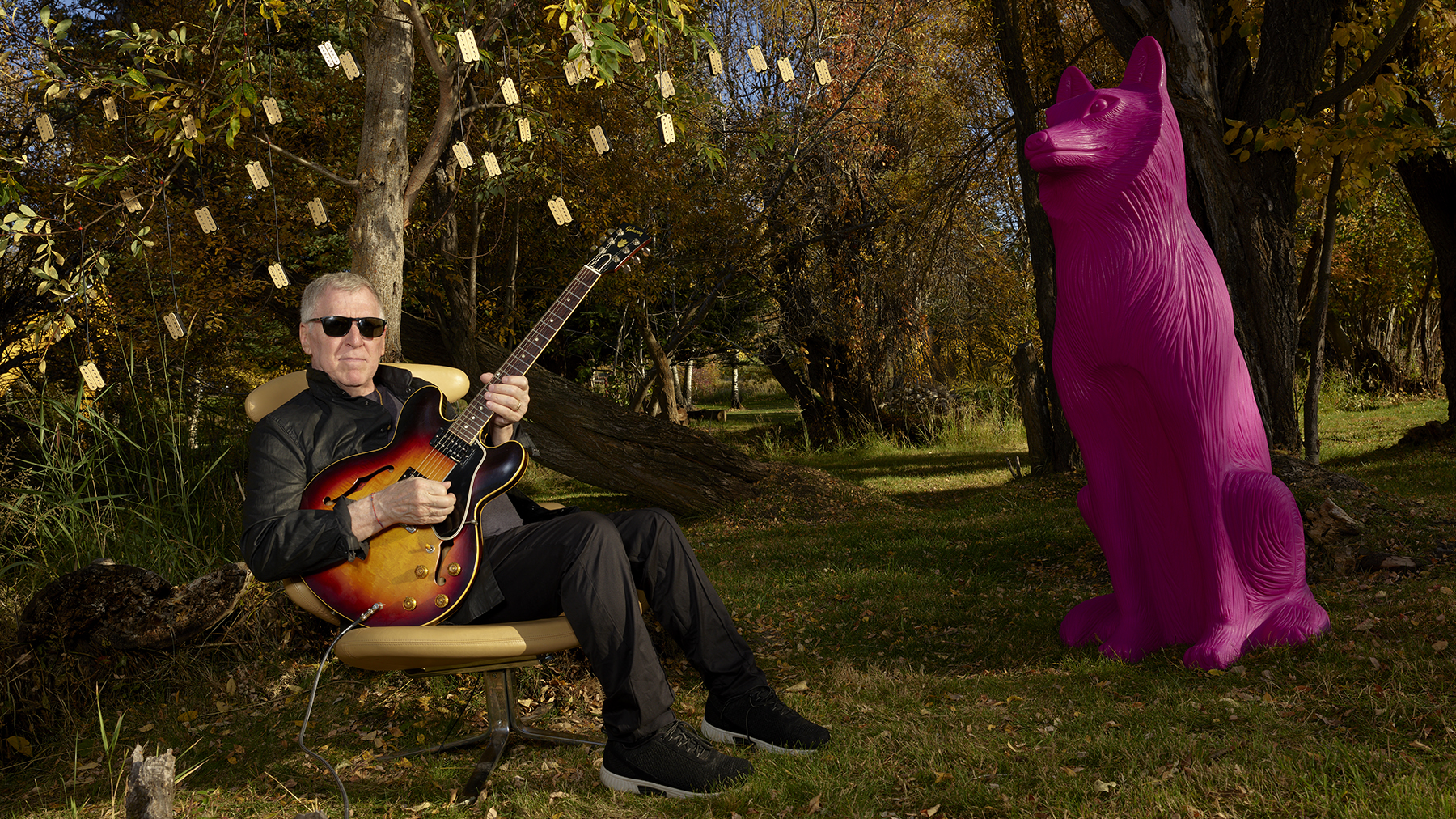“It Sounded So Live, So Electric”: Albert Lee Talks Telecasters
The Grammy-winning guitarist discusses his love for Fender’s original solidbody electric guitar in this archive interview from the GP vault.
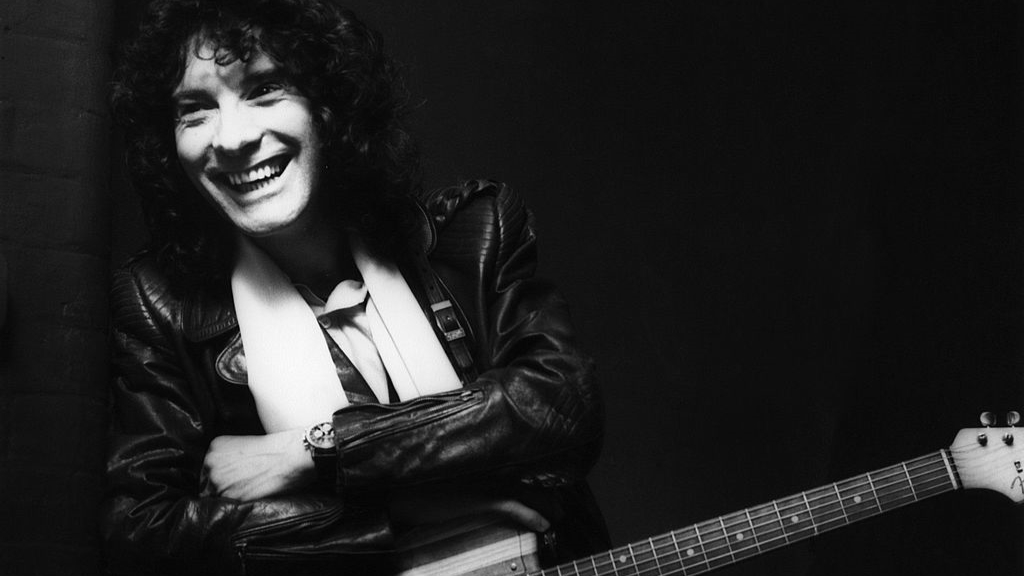
British-born country-rock guitarist Albert Lee is one of the most revered players around. Beginning his career in the burgeoning rock ‘n’ roll scene of 1960s London he went on to work with the likes of Eric Clapton, the Everly Brothers, the Crickets and Emmylou Harris.
Though Lee has lent his name to signature Ernie Ball Music Man models, he has also been dubbed ‘Mr Telecaster.’ And for good reason.
Many guitarists have explored the deceptively subtle language of the Fender Telecaster, but few are as fluent or as eloquent as Lee.
Like Roy Buchanan or Arlen Roth, he is a master of the blistering Tele lick. And like Steve Cropper or James Burton, he can mold a disarmingly simple phrase into the perfect fill.
The following interview extract originally appeared in the May 1981 issue of Guitar Player…
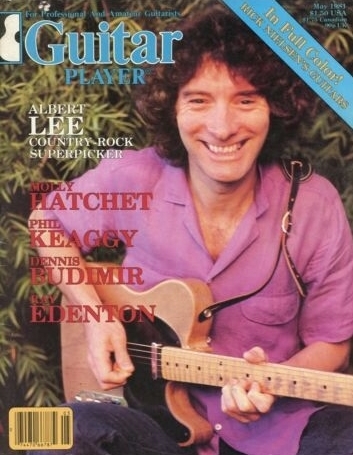
Have you always used a Telecaster?
Since 1963. My first good guitar was a Les Paul Custom, a single-cutaway 3-pickup model. That was great. I sold it because I wanted to get a Scotty Moore model, a Gibson Super 400. Big mistake! It was just a disaster, totally wrong for the way I was playing.
Get The Pick Newsletter
All the latest guitar news, interviews, lessons, reviews, deals and more, direct to your inbox!
When you started playing Telecasters, had you heard that sound before or did you discover it on your own?
Telecasters were quite rare in England. They had the image of being a rhythm guitar because the band over there in the early '60s was Cliff Richard and the Shadows.
The lead player had a Stratocaster, and the rhythm player had a Telecaster, so everyone thought that Teles were rhythm guitars and there weren't that many around.
I got an old Tele, about a '59 or '60, and it must have been one of the first with rosewood fingerboard. It cost about $120.00 and was pretty beaten up. The guy at the store said, "Look, a James Burton guitar."
It sounded so live, so electric, more so than anything I'd ever played
Albert Lee
It seemed really Mickey Mouse compared to the Les Paul Custom, but as soon as I played it I thought, this is great. It sounded so live, so electric, more so than anything I'd ever played. From then on it was always number one.
My style evolved around that guitar. I suppose my favorite is my '53 Tele.
More than any other guitar, the Telecaster seems to have fostered a whole school of players such as yourself, Roy Buchanan, and James Burton. It's almost as if the Telecaster has a language all its own.
That style just doesn't sound right on another guitar. I'll get really frustrated sometimes and dig out the Strat or my Les Paul and take it along to a gig, and I'll think, ah, shit, I wish I'd brought the Tele.
Even though the others have great characters of their own, you develop a style on a Tele you don't develop on another guitar.
You develop a style on a Tele you don't develop on another guitar
Albert Lee
Do you prefer a maple fingerboard over rosewood?
I haven't really found that much difference, although I know a lot of people have. I wish I still had my old rosewood-neck Tele, but I always wanted the older maple-neck kind because it looked so neat with a line running down the back of the neck.
When they first started importing Fenders to England in about 1960, you didn't see anything like the maple-neck Teles. You only saw them in photographs and on album covers.
That's why I just went crazy when I first came to the States – I just had to have a '50s Tele and a Strat as well. I finally got myself a Buddy Holly type sunburst Strat.
Do you find it difficult to go from one guitar to another?
I can adjust. I'll try and play licks that I would only play on the Tele and just don't sound the same on the Strat. You have to tailor your playing accordingly.
Moving to an acoustic guitar also takes some adjustments. I really like to practice on acoustic myself, and I don't do too much practicing at home on electric guitar.
On the Telecaster, do you play on the lead pickup most of the time?
All of the time. Sometimes for really honking rock and roll I'll put it out of phase for that funky sound. I love that sound. I've just put a phase switch in – that's about the only thing I've done to it.
Of all the different pickups that you've tried, have you found any that you like better than the stock Fenders?
There's something about the fatness and the inherent distortion in these old pickups
Albert Lee
Not really. They're all good in their own way, but there's something about the fatness and the inherent distortion in these old pickups. It's frightening to me, really – if anything happened to my '53 Tele I don't know what I'd do.
It gives you a feeling of insecurity when you're relying on something that isn't made anymore.
I know a lot of guys who'd probably disagree with me, especially Seymour Duncan. He'd say, "I could build something exactly the same or even better."
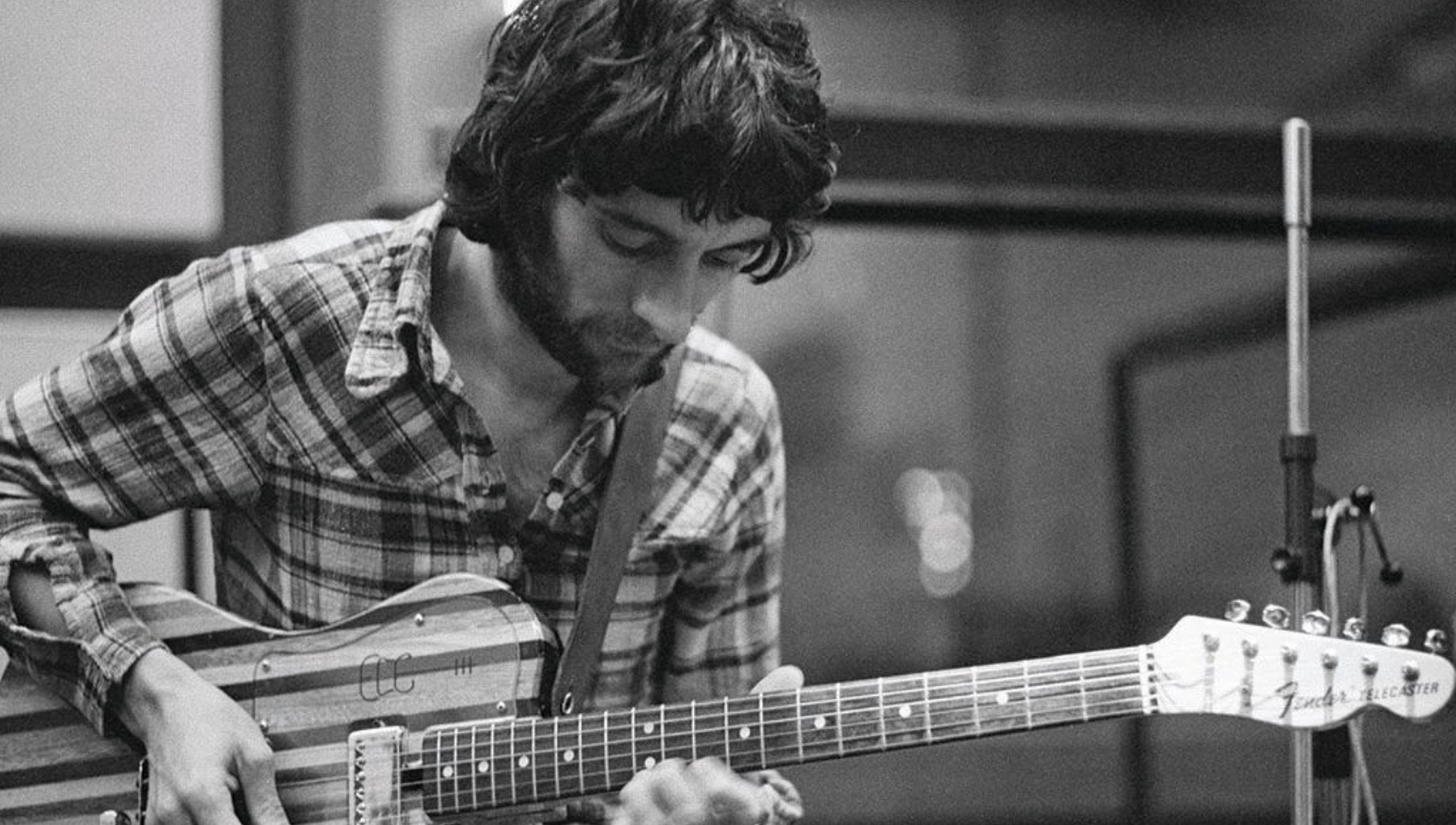
What do you think about the vintage guitar market?
It's real sad that there are people around who do it just for money. I see a lot of it on the road with Eric [Clapton] because people come along with primo guitars and just want the earth for them. They know that people like Eric can afford it, although he's stopped buying.
There are still a lot of guys who keep buying them. It's all right if you can afford it, but it's hard for people who really need these instruments.
I can't believe how much my '53 Tele is worth now. You can pay $1,500.00 for a real good one. I paid about $350.00 for it in 1972. I suppose that was a lot then.
Browse Albert Lee's catalog here.
Rod Brakes is a music journalist with an expertise in guitars. Having spent many years at the coalface as a guitar dealer and tech, Rod's more recent work as a writer covering artists, industry pros and gear includes contributions for leading publications and websites such as Guitarist, Total Guitar, Guitar World, Guitar Player and MusicRadar in addition to specialist music books, blogs and social media. He is also a lifelong musician.
"It's a powerful, versatile variation on the timeless Telecaster, with a vital back story to boot." We review the Fender Stories Collection Mike Campbell Red Dog Telecaster
"We tried every guitar for weeks, and nothing would fit. And then, one day, we pulled this out." Mike Campbell on his "Red Dog" Telecaster, the guitar behind Tom Petty & the Heartbreakers' "Refugee" and the focus of two new Fender tribute models

